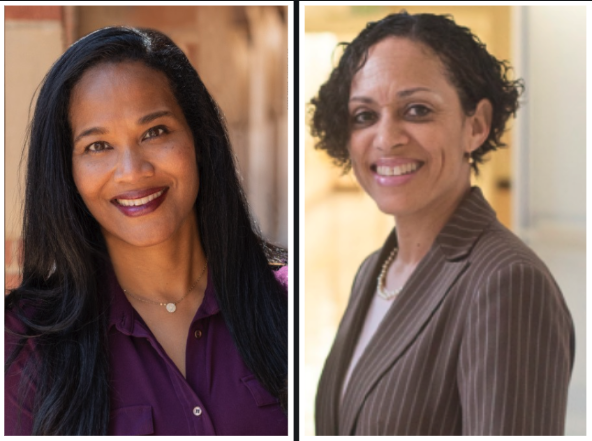LA Focus: Pay Attention - “Intersectionality Must Matter in Our Society”

By Emily C. Williams, MPP, and Dion-Cherie Raymond, Esq.
Social scientists recognize that different people view issues differently and that these perspectives are determined by their lived experiences. For example, a white male rural farmer will approach the issue of education differently than a Black, single urban mother. Respect for these differing perspectives is what makes our country the unprecedented pluralistic experiment that it is today.
Social scientists also understand that it’s important to design and conduct research in a way that enables respondents to voice their perspectives and by doing so, inform decision-makers about myriad issues like homelessness, public safety, child protection, education, and social support services, to name a few.
We do our best to use a “representative sampling” of research subjects, going to great lengths to consider race, gender, age, and a host of other characteristics that ensure credible evidence-based results.
Depending on the research, ignoring a particular viewpoint can threaten the validity of the study.
For example, research about discrimination that ignores the unique perspectives and experiences of a large demographic subgroup such as Black or Asian American/Pacific Islander women, would be categorically flawed. Stated differently: diversity matters. Its absence from the study would not render an accurate portrayal and such omissions carry significant consequences in all areas of public policy.
That’s why legislation currently being considered in Sacramento, Senate Bill 1137 (Smallwood-Cuevas, SD- 28), represents an important step in the right direction. SB 1137 seeks to prevent discrimination through the lens of intersectionality.
The legislation aims to amend California’s Unruh Civil Rights Act, which provides that all persons are entitled to full and equal accommodations regardless of, among other things, sex, race, color, sexual orientation, religion, or ancestry. If passed, it would revise the Act’s definition to include any intersection or combination of two or more characteristics.
Intersectionality, first coined in 1989 by UCLA and NYU legal scholar Kimberlé Crenshaw, explains how different social identities coincide and converge to cause unfair treatment based on a given combination.
Black women could encounter bias based on a combination of their race and/or gender not shared by Black men or Asian women, which is why the Equal Employment Opportunity Commission recognized that biases and negative stereotypes motivated by two or more protected traits could constitute intersectional discrimination under Title VII of the 1964 Civil Rights Act.
In its Batson v. Kentucky case involving the dismissal of four Black men from a jury pool, the U.S. Supreme Court found that the rights of defendant James K. Batson, a Black man, had been violated because prosecutors dismissed all four prospective Black jurors. By removing those jurors, prosecutors not only denied Mr. Batson a fair trial, but the discriminatory jury selection process also caused harm to the prospective jurors and the public’s confidence in the justice system.
A pending case before the 9th Circuit Court of Appeal, USA v. Mark Ridley-Thomas, seeks a dismissal on similar grounds.
Dr. Ridley-Thomas’ legal team argues that during his 2023 trial’s jury selection, the government used two of its peremptory challenges in a discriminatory manner to purposefully exclude the only two Black women from the jury. During jury selection, Ridley-Thomas’ lawyers immediately raised a Batson challenge, which the judge rejected.
In his current appeal, Mark Ridley-Thomas’s legal team argues that Black women face discrimination on two major counts – both race and gender – and their lives are uniquely marked by this combination.
Other U.S. Courts of Appeal have accepted this intersectionality argument. Surprisingly, the 9th Circuit has not. It’s time to fix this lack of recognition as there is an abundance of legal decisions, scholarly research, gender studies, and social policy that make the case for the recognition of intersectionality compellingly.
As Loyola Marymount University political science professor Chaya Crowder instructs: intersectionality is the center of awareness of the lived experience of any given subgroup. This perspective becomes particularly important when taking into consideration marginalized subgroups, e.g., Black women who contend with manifold discrimination and subjugation.
Loyola Law professor Priscilla Ocen adds that intersectionality helps to clarify and amplify the social marginality of women of color. In other words, interlocking systems—courts, universities, corporations—conspire to deny marginalized subgroups their full measure of humanity, dignity, equity, and participation.
Building upon the Supreme Court’s original Batson decision, Senate Bill 1137 seeks to include any intersection or combination of characteristics that could lead to discriminatory practices or a diminution of rights afforded and protected under the law – be it housing, school admissions, or being selected to serve on a jury – and is a necessary step forward. Its enactment is an important milestone in seeking a more just society, specifically equity in the classroom, workplace, and courtroom.

